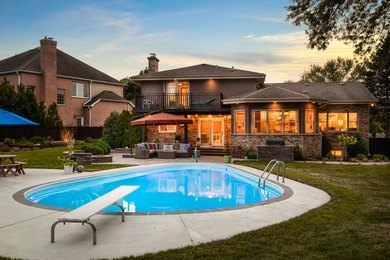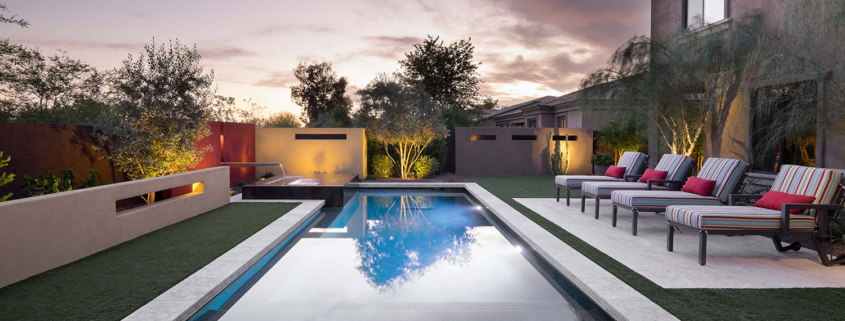Understanding Inground Pool Surface Types: What You Need to Know Before Installation
Installing an inground pool is an exciting project that can enhance your property’s value, aesthetics, and functionality. However, one of the most critical decisions you’ll make during the pool installation process is choosing the right surface type. Your choice of pool surface affects not only the look and feel of your pool but also its durability, maintenance requirements, and long-term costs. At Sonoran Waters, we understand that every pool owner has unique preferences and needs. This comprehensive guide will help you understand the various inground pool surface types so you can make an informed decision that perfectly suits your vision.
Key Factors to Consider When Choosing a Pool Surface
Before diving into the different pool surface types, it’s essential to consider a few key factors that will influence your decision:
1. Budget
Your budget will significantly impact the choice of pool surface. While some surfaces like vinyl liners are more affordable, others like concrete or aggregate finishes may require a larger initial investment but offer greater durability. At Sonoran Waters, we offer a range of pool surface options to suit all budgets, ensuring you find a solution that matches your financial plan.
2. Durability
Different pool surfaces offer varying levels of durability. For example, concrete and aggregate finishes are known for their strength and longevity, making them a popular choice for many homeowners. Consider how long you plan to keep the pool, the expected wear and tear, and the environmental conditions of your area.
3. Maintenance Requirements
Maintenance is another crucial factor when selecting a pool surface. Some surfaces require more frequent cleaning and maintenance than others. For instance, vinyl liners may be prone to tears and need replacement more often, while surfaces like fiberglass and quartz are easier to maintain. Sonoran Waters specializes in low-maintenance swimming pool surfaces, allowing you to enjoy your pool more and worry less about upkeep.
4. Aesthetic Appeal
Your pool surface will significantly impact the overall aesthetic of your pool area. Whether you prefer a sleek, modern look or a more natural and rustic appearance, Sonoran Waters offers various pool surface types to help you achieve your desired style. Consider how the surface’s color, texture, and finish align with your home’s outdoor space.
5. Climate and Environment
The climate in your area can influence your choice of pool surface. For example, concrete can crack in regions with freezing temperatures, while vinyl liners may fade or become brittle under intense sunlight. Our team at Sonoran Waters is experienced in recommending pool surfaces that perform well in various climates, ensuring a long-lasting and beautiful pool.
Popular Inground Pool Surface Types
Understanding the different inground pool surface types will help you select the best option for your needs. Here are the most popular choices:
1. Concrete Pool Surfaces
Concrete is one of the most popular choices for inground pools due to its durability and customization options. This material allows for limitless design possibilities, including unique shapes, depths, and additional features like built-in steps or seating areas.
- Pros: Concrete pools are incredibly durable and long-lasting, often lasting several decades with proper care. They offer complete customization, allowing you to create a pool that fits your unique preferences.
- Cons: Concrete surfaces can be rough on the feet and require regular maintenance, including acid washing and resurfacing every 10-15 years. They can also be more expensive than other options.
- Best for: Homeowners looking for a long-term investment and a fully customizable pool.
2. Vinyl Liner Pool Surfaces
Vinyl liner pools are a popular and budget-friendly option for many homeowners. These liners are available in various colors and patterns, providing a customizable look at a lower cost.
- Pros: Vinyl liners are smooth to the touch, reducing the risk of scrapes and scratches. They are more affordable upfront than concrete or aggregate pool finishes.
- Cons: Vinyl liners are less durable and may require replacement every 5-9 years. They are also prone to tears and punctures, which can lead to leaks.
- Best for: Budget-conscious homeowners and those seeking a smooth, comfortable pool surface.
3. Fiberglass Pool Surfaces
Fiberglass pools are known for their low maintenance and quick installation. The surface is pre-molded into various shapes and sizes, offering a smooth, non-porous finish that resists algae growth.
- Pros: Fiberglass surfaces are non-abrasive, easy to clean, and resistant to algae growth. They also require fewer chemicals for maintenance.
- Cons: Fiberglass pools are limited in shape and size options compared to concrete pools and can have a higher initial cost.
- Best for: Homeowners who want a low-maintenance pool that is quick to install.
4. Aggregate Pool Finishes
Aggregate pool finishes, such as Pebble Tec, are created by mixing small stones, pebbles, or glass beads with cement. These finishes provide a textured, natural look and feel that is highly durable and slip-resistant.
- Pros: Aggregate finishes are highly durable, offer a natural and luxurious appearance, and are slip-resistant. They come in a variety of colors and textures.
- Cons: Aggregate surfaces can be rough on the feet and may have a higher initial cost than other finishes.
- Best for: Homeowners looking for a high-end finish that provides a natural look and slip resistance.
5. Quartz Pool Finishes
Quartz pool finishes are a blend of crushed quartz, polymer-modified cement, and a variety of colorful pigments. This surface is highly durable and offers a unique, shimmering look to the pool.
- Pros: A pool quartz finish is highly resistant to chemical damage and staining. It also offers a smoother texture than concrete and a unique, sparkling appearance.
- Cons: Quartz finishes may require a higher initial investment than standard plaster but offer greater durability and aesthetic appeal.
- Best for: Homeowners seeking a durable, attractive finish with minimal maintenance needs.
6. Plaster Pool Finishes
Plaster is a traditional pool surface made from a mixture of cement, sand, and water. It provides a smooth, classic finish that is relatively affordable.
- Pros: Plaster is cost-effective and offers a smooth finish. It’s a good option for those looking for a simple, classic pool surface.
- Cons: Plaster surfaces can wear down over time, becoming rough and requiring resurfacing every 5-10 years.
Best for: Homeowners looking for a budget-friendly, straightforward option.

Comparing Pool Surface Types
Now that we’ve explored the various pool surface types, let’s compare them to help you make an informed choice.
1. Cost Comparison
- Concrete: Higher upfront cost but offers long-term durability.
- Vinyl Liner: Lower initial cost, but may require more frequent replacement.
- Fiberglass: Higher initial investment, but lower lifetime maintenance costs.
- Aggregate Finishes: Higher initial cost, but highly durable and visually appealing.
- Quartz: Moderate to high initial cost, balanced with longevity and aesthetic benefits.
- Plaster: Lower initial cost but may require more frequent maintenance and resurfacing.
2. Durability Comparison
- Concrete: Extremely durable but requires regular maintenance to prevent cracking.
- Vinyl Liner: Less durable, with a shorter lifespan and susceptibility to tears.
- Fiberglass: Very durable with minimal maintenance needs.
- Aggregate and Quartz: Highly durable and resistant to damage, stains, and chemicals.
- Plaster: Moderate durability, with wear and tear requiring resurfacing.
3. Maintenance Comparison
- Concrete: Regular maintenance, including acid washing and resurfacing.
- Vinyl Liner: Requires careful handling to avoid punctures and tears.
- Fiberglass: Minimal maintenance, with a smooth surface that resists algae.
- Aggregate and Quartz: Low maintenance, resistant to stains and chemicals.
- Plaster: Moderate maintenance, with resurfacing required every 5-10 years.
Choosing the Best Pool Surface for Your Needs
Selecting the best pool surface is about balancing cost, durability, maintenance, and aesthetic preferences. Here are some steps to help you make the right choice:
1. Assess Your Needs
Consider your lifestyle, budget, and design preferences. Are you looking for a pool that requires minimal maintenance, or are you willing to invest time in upkeep? Do you prefer a natural look or a sleek, modern finish?
2. Consult with Experts
At Sonoran Waters, we offer professional guidance to help you choose the best swimming pool finish. Our team considers all factors, including your budget, climate, and personal preferences, to recommend the most suitable pool surface types for your project.
3. Plan for the Future
Consider how your pool needs may change over time. If you plan to sell your home in the future, investing in a high-quality, durable surface like an aggregate or quartz finish may enhance the property’s value. If you anticipate frequent usage, a low-maintenance option like fiberglass might be best.
Conclusion
Choosing the right inground pool surface is a critical decision that affects your pool’s longevity, maintenance requirements, and overall enjoyment. Whether you prefer the classic look of plaster, the low-maintenance appeal of fiberglass, or the luxurious feel of a pool quartz finish, understanding the pros and cons of each option will help you make the best choice for your home.
At Sonoran Waters, we specialize in offering a variety of swimming pool surfaces to suit every preference and budget. Our team of experts is ready to help you find the best swimming pool finish that meets your unique needs. Contact us today to schedule a consultation and start transforming your backyard into the oasis of your dreams.



